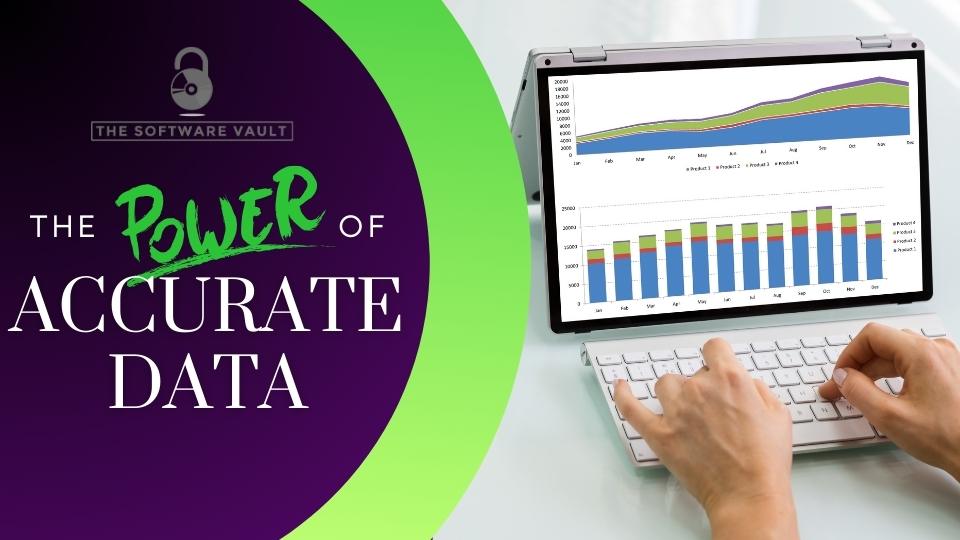Accurate data is crucial for nonprofit organizations to effectively measure their impact, make informed decisions, and drive positive change. Whether it’s tracking program outcomes, analyzing donor trends, or ensuring compliance with reporting requirements, capturing accurate data can significantly benefit nonprofits. In this newsletter, we will explore 3 benefits for capturing accurate data and 2 techniques for minimizing data collection errors.
3 Benefits for Ensuring Data is Accurate
Inaccuracies in program impact data and financial reports can erode trust. Nonprofits often rely on data to demonstrate the effectiveness of their programs and showcase the positive outcomes they achieve. If the data is flawed or misleading, it undermines the organization’s credibility and raises doubts about its impact. Donors and supporters may become skeptical about investing in an organization that cannot provide accurate evidence of its achievements.
Furthermore, inaccurate financial information makes it difficult for donors, grant-making organizations, and government agencies to assess the organization’s financial health and accountability. This can lead to a loss of funding opportunities as potential donors and grantors may question the reliability and credibility of the nonprofit.
Let’s dive deeper into 3 benefits of obtaining and maintaining accurate data for nonprofit organizations.
1. Improved Program Effectiveness:
Accurate data enables nonprofits to evaluate the effectiveness of their programs and interventions. By tracking key performance indicators and outcomes, organizations can identify what works and what doesn’t. This empowers nonprofits to refine their programs, make data-driven adjustments, and ensure they are delivering the desired outcomes to their beneficiaries.
2. Enhanced Accountability and Transparency:
Nonprofits have a responsibility to their stakeholders, including donors, beneficiaries, and the wider community. Accurate data helps demonstrate accountability and transparency by providing evidence of the organization’s impact. It allows nonprofits to effectively communicate their achievements, use resources responsibly, and maintain trust with their stakeholders.
3. Increased Funding Opportunities:
Donors and funders increasingly rely on data to inform their giving decisions. Accurate data showcases a nonprofit’s effectiveness and impact, making it more appealing to potential funders. Organizations with robust data capture and reporting systems often have a competitive advantage, as they can provide concrete evidence of their work and demonstrate how their programs align with funders’ goals and priorities.
2 Techniques to Minimize Data Collection Errors
Imagine juggling multiple spreadsheets that contain the same data and becoming frustrated month over month with managing numerous files, each requiring manual updates that risks inconsistencies. This inefficient process not only wastes valuable time but also increases the likelihood of errors and data discrepancies. Why not embrace a more streamlined approach?
Below are 2 techniques that could help with streamlining data collection while improving accuracy.
1. Utilize a Database Management Systems:
Implementing a robust database management system enables nonprofits to capture, store, and organize accurate data efficiently and in one location. These systems allow for centralized data storage, easy retrieval, and real-time updates. Popular tools like Salesforce, Microsoft Dynamics 365, or DonorPerfect can be used to manage donor information, program outcomes, and other relevant data. Also, some of these tools are offered to nonprofit organizations at a free or reduced cost.
2. Integrate with Third-Party Systems:
Nonprofit organizations can integrate their data capture systems with other software systems or platforms to streamline data entry and improve accuracy with data capture and reporting. For example, integrating a donor management system with an online fundraising platform ensures accurate donation records are captured. Integration with accounting software like QuickBooks or Xero helps capture financial data accurately, helping to reduce manual entry errors. Integrating data collection systems such as forms and surveys with the database management system eliminates the need for manual extraction and entry into other systems.
Sources:

